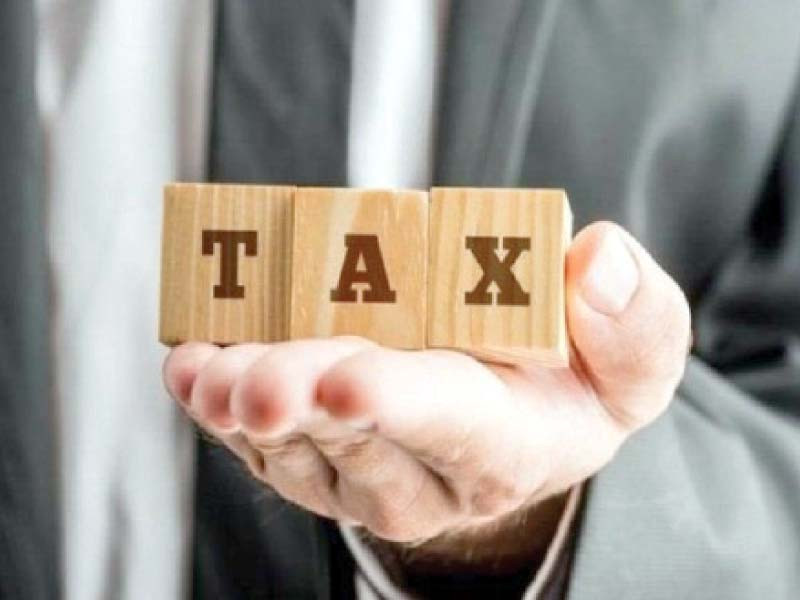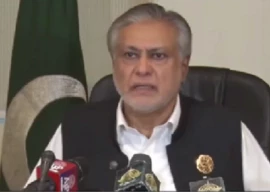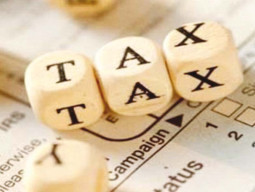
Despite healthy momentum in the revenue generation, the International Monetary Fund (IMF) has asked Pakistan to impose roughly Rs600 billion in additional taxes and again urged Islamabad to set up an anti-corruption task force.
However, the authorities concerned have yet to accept the demand of imposing more taxes amid pinching high double-digit inflation – one of the leading factors behind evaporating political fortunes of the ruling alliance in the political capital and the opposition’s popularity.
The demands were put forth before the Pakistani authorities by IMF Mission Chief to Pakistan Nathan Porter along with half a dozen other conditions during recent interactions in Washington, according to government sources.
The matter will be discussed during the next round of the programme review talks that are expected to take place in November, sources told The Express Tribune.
The IMF is of the view that due to inflation-induced nearly 25% nominal growth of the economy in the current fiscal year, the tax-to-GDP ratio would fall below the agreed level even if the FBR achieves its annual target of Rs7.470 trillion, according to the sources.
At the time of the budget, the government had estimated the size of the GDP at Rs78 trillion on the basis of an average inflation rate of 11.5% and an economic growth rate of 5%. The Rs7.470 trillion annual tax target is equal to nearly 9.6% of the GDP.
However, due to various administrative measures, rupee devaluation, floods and food supply shocks, the average inflation is now estimated at 23% and the GDP growth rate is around 2%. After a spike in inflation, the projected size of the GDP for the current fiscal year is estimated at Rs83 trillion.
This would bring down the tax-to-GDP ratio to around 8.9% despite hitting the Rs7.470 trillion annual target by the FBR.
In order to stick to the macroeconomic framework targets, the IMF has estimated that Pakistan may have to take additional revenue measures equal to 0.75% of the GDP, which translates into over Rs600 billion, according to the sources.
The government has set the annual tax collection target of the FBR at Rs7.470 trillion, which requires a 22% growth rate over the last year’s collection. The FBR has collected over Rs1.61 trillion during the first quarter, surpassing its target by over Rs26 billion. But the growth rate in the collection was 17%, significantly lower than the prevailing inflation rate.
“The FBR is not considering any proposal to impose more taxes,” said Afaque Qureshi, a member of Inland Revenue Policy and the spokesman.
It is highly unlikely that the Pakistan Democratic Movement’s coalition government will accept such a demand. The main alliance party, the PML-N, has already taken the worst hit on its vote bank and popularity due to the increasing cost of living.
The sources said that one of the options that the IMF gave was to impose a sales tax on petroleum products but the Finance Minister Ishaq Dar did not accept any tax-specific recommendation of the IMF.
The government is currently charging Rs47.50 per litre petroleum levy tax on petrol and around Rs7.58 per litre on diesel. The IMF has also asked the government to keep adhering to the plan agreed upon for imposing the petroleum levy, which warrants Rs50 per litre levy on petrol in January 2023 and Rs50 per diesel till March 2023.
The government is already close to the maximum threshold on petrol but it is now required to start increasing taxes on diesel from next month to remain on track.
The sources said that the IMF has also urged Pakistan to notify an anti-corruption task force, which the government had agreed to in June this year.
According to the agreement, by January 2023 Pakistan will publish a comprehensive review of the anti-corruption institutional framework, mainly the National Accountability Bureau (NAB) -- by a task force with the participation of independent experts with international experience and civil society organisations.
The task force will also recommend as appropriate structural reform measures that strengthen the independence of anti-graft institutions, prevent political influence and persecution, and provide for transparency and accountability controls against abuse, according to the deal.
The sources said that before joining of the Finance Minister Ishaq Dar, the name of former Prime Minister Shahid Khaqan Abbasi was proposed to head the task force. But no decision had been taken.
“Shahid Khaqan Abbasi’s name had been proposed to head the task force but my view was that an international expert with a strong legal background, preferably from New Zealand or Singapore should head the body,” said Miftah Ismail, former Finance Minister. These countries are considered to have a very low prevalence of corruption in society.



1730464111-0/raygun-(1)1730464111-0-165x106.webp)
1730967569-0/BeFunky-collage-(28)1730967569-0-165x106.webp)
1730967164-0/trump-(21)1730967164-0-165x106.webp)















COMMENTS
Comments are moderated and generally will be posted if they are on-topic and not abusive.
For more information, please see our Comments FAQ